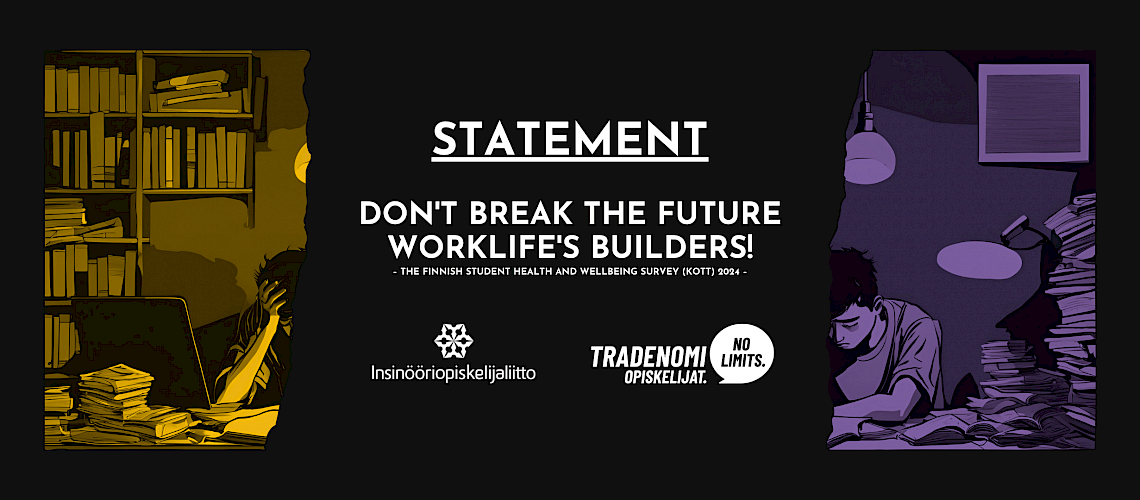STATEMENT: Don't break the future worklife's builders!
19.12.2024

Christmas is approaching, and the landscape is lit up with bright christmas lights. For students, however, the future looks darker than ever, and not even the brightest light seem to be able to change that reality. Students are battling financial insecurity, increasing debt, and burnout. Investing in well-being and education is an investment in the future of society as a whole, but current decisions are steering development in the wrong direction.
The results of the 2024 The Finnish Student Health and Wellbeing Survey (KOTT) reveal an alarming, yet unsurprising, picture of the grim situation for the students. Almost one in four (24%) UAS students reported that their financial situation was very tight and uncertain over the past year. This is a significant increase from 2021, when the figure was approximately one in six (16%). Financial insecurity affects students’ mental health, progress in studies, and overall resilience, risking their ability to transition into work life as skilled and healthy individuals.
The government has decided on measures that exacerbate students’ distress. The shift from general housing allowance to the housing supplement in student financial aid (effective August 1, 2025) could mean an annual income reduction of thousands of euros for university students. The freeze on student financial aid indexation worsens the situation further, as the support amount won’t adjust to rising living costs. Additionally, the growing reliance on loans forces students to take on more debt during their studies. Consequently, universities are sending graduates into the workforce who are indebted and exhausted, expected to achieve a lot but already burdened – both mentally and financially.
The KOTT study also highlights the severe impact of financial difficulties on students’ daily lives. Up to one in four higher education students fear running out of food, while almost one in five have had to forego purchasing necessary medication. Financial distress affects mental health, study progress, and overall well-being. Students are not merely cutting back on luxuries but struggling with life’s basic necessities: what food to buy, which medications they can afford, and whether there is enough money to pay the rent?
Do these figures capture the attention of decision-makers? Unfortunately, it doesn’t seem so. The budget cuts made by the government paint an even darker picture of the future unless decision-making takes a new direction.
The quality of future work life is at risk
The financial pressures students face are not just their problem but a threat to society and the future of work life as a whole. A student burdened by financial insecurity and exhaustion does not graduate as a fully capable professional but as someone entering the workforce already tired and indebted. Finland needs highly educated, well-being professionals, but current policies undermine this goal. The quality of work life and the nation’s economic growth depend on skilled and thriving workers.
Students who are well-supported graduate faster and are better equipped to tackle the challenges of working life. Ensuring access to basics like housing, food, and health care is crucial not only for the individual but for society and its future as a whole.
What kind of future for work life is being built with policies like these? It’s time to understand that supporting students is not just an expense but an investment in the future of society. Decision-making must ensure that students, too, have the opportunity to live, study, and graduate as thriving individuals ready to meet the challenges of the working life!
